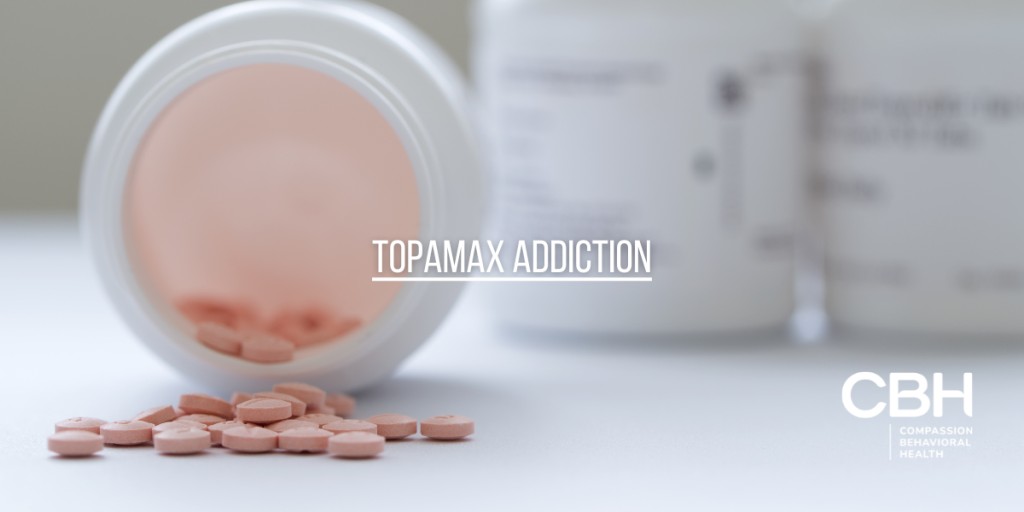In recent years, the world has witnessed an alarming rise in Topamax addiction. This powerful medication, originally intended for medical purposes, has now become a source of concern due to its misuse and addictive potential. In this article, we will delve into the causes, effects, and treatment options for Topamax addiction. By understanding the underlying factors contributing to this issue, we hope to shed light on this escalating problem and provide guidance for those affected.
What is Topamax: Its Uses and Misuses
Before we discuss the addiction potential of Topamax, it is important to understand its intended use in the medical field. Topamax, or topiramate, is a prescription medication primarily prescribed for the treatment of epilepsy and migraines. When used as directed by a healthcare professional, it can provide significant relief for individuals suffering from these conditions.
The Medical Purpose of Topamax
Topamax works by inhibiting abnormal electrical activity in the brain, reducing the frequency and severity of seizures in individuals with epilepsy. Additionally, it can help to prevent migraines by stabilizing the excitability of brain cells.

Imagine a person living with epilepsy, constantly plagued by unpredictable seizures that disrupt their daily life. Topamax, with its unique mechanism of action, offers hope and respite. By targeting the underlying cause of seizures, it allows individuals to regain control over their bodies and live a more fulfilling life. Similarly, for those suffering from debilitating migraines, Topamax can be a game-changer. It acts as a shield, protecting them from the relentless onslaught of pain and allowing them to engage in activities they once thought impossible.
The Escalating Problem of Topamax Addiction
As the misuse of Topamax continues to rise, it is crucial to examine the extent of this problem. By understanding the statistics and demographics most affected by Topamax addiction, we can develop targeted interventions to combat this growing issue.
Statistical Overview of Topamax Addiction
Although precise statistics may vary, it has been reported that the misuse of Topamax has increased significantly in recent years. This rise in addiction cases necessitates increased awareness and intervention to prevent further harm.
Let’s delve deeper into the statistical landscape surrounding Topamax addiction. According to a national survey conducted by the Substance Abuse and Mental Health Services Administration (SAMHSA), it was found that the number of individuals seeking treatment for Topamax addiction has doubled in the past five years. This alarming trend highlights the urgent need for effective prevention and treatment strategies.

Furthermore, studies have shown that the misuse of Topamax is not limited to a specific age group or gender. While it is commonly associated with younger individuals, particularly those in their late teens to early twenties, Topamax addiction can affect people of all ages. This includes middle-aged adults who may have initially been prescribed the medication for legitimate medical reasons but subsequently developed a dependency.
Demographics Most Affected by Topamax Addiction
Topamax addiction does not discriminate and can affect individuals from all walks of life. However, certain demographics may be more at risk. Factors such as age, socio-economic status, and underlying mental health conditions can contribute to the vulnerability of certain populations.
Research has indicated that individuals with a history of substance abuse or addiction are more likely to develop a dependence on Topamax. This suggests that those already struggling with addiction may be more susceptible to the allure of this medication and its potential for misuse.
Moreover, socio-economic factors play a significant role in the prevalence of Topamax addiction. Studies have shown that individuals from lower-income households are more likely to misuse prescription medications like Topamax. This could be attributed to limited access to quality healthcare, leading some individuals to self-medicate or seek alternative means of obtaining the drug.
The Causes of Topamax Addiction
While the causes of Topamax addiction can vary from person to person, there are common psychological and socio-economic factors that contribute to its development. By recognizing and addressing these underlying causes, we can better understand and treat the addiction.
Psychological Factors Contributing to Addiction
For some individuals, the misuse of Topamax may be rooted in psychological factors such as stress, anxiety, or a desire to escape reality. These underlying emotional issues can drive individuals to seek solace in substances and, over time, develop an addiction.

Socioeconomic Factors and Topamax Addiction
Socioeconomic factors can also play a significant role in the development of Topamax addiction. Limited access to healthcare, lower education levels, and unemployment can contribute to individuals seeking alternative means of coping with their challenges, leading to substance misuse.
The Devastating Effects of Topamax Addiction
Topamax addiction can have severe consequences on physical health, mental well-being, and the overall social and economic fabric of individuals and communities. Understanding these effects is crucial for raising awareness and promoting early intervention.
Physical Health Consequences of Topamax Addiction
Prolonged misuse of Topamax can have detrimental effects on the body. Common physical health consequences include
- Liver damage
- Kidney problems
- Cardiovascular issues
- Compromised immune function

Mental Health Implications of Topamax Addiction
Topamax addiction can contribute to or exacerbate existing mental health conditions. Individuals may experience
- Heightened anxiety
- Depression
- Psychosis
- Cognitive impairments
as a result of their substance misuse.
Social and Economic Impact of Topamax Addiction
The consequences of Topamax addiction extend beyond the individual level and permeate society. From strained relationships to loss of employment and financial instability, the social and economic impact of addiction can be profound.
Treatment Options for Topamax Addiction
Thankfully, there is hope for individuals struggling with Topamax addiction. With the right support and treatment, recovery is possible. Here, we explore the various medical and therapeutic options available for those seeking to overcome their addiction.
Medical Interventions for Topamax Addiction
Treatment for Topamax addiction often begins with a comprehensive assessment by a healthcare professional. Depending on the individual’s needs, medical interventions may include detoxification, medication-assisted treatment, and ongoing monitoring of physical health.
Therapeutic Approaches to Topamax Addiction

Therapy plays a crucial role in addressing the underlying psychological factors contributing to Topamax addiction. Evidence-based approaches, such as cognitive-behavioral therapy (CBT) and motivational interviewing (MI), can help individuals gain insight into their addiction and develop coping skills for long-term recovery.
The Role of Support Groups in Addiction Recovery
Support groups, such as Alcoholics Anonymous (AA) or Narcotics Anonymous (NA), can provide invaluable peer support and a sense of community for individuals on their journey to recovery. By connecting with others who have faced similar challenges, individuals can find strength, encouragement, and guidance.
In conclusion, the alarming rise of Topamax addiction necessitates a comprehensive understanding of its causes, effects, and treatment options. By addressing the underlying factors driving addiction, providing support and treatment to those affected, and raising awareness in communities, we can work towards preventing and addressing this growing problem. Remember, it is never too late to seek help, and recovery is possible.

Topamax Addiction Treatment at CBH
Recognizing the complexity of addiction, Compassion Behavioral Health employs a variety of therapeutic approaches designed to address the psychological aspects of Topamax addiction. Cognitive-behavioral therapy (CBT) and motivational interviewing (MI) are among the evidence-based methods used to help individuals understand the root causes of their addiction, develop healthier coping mechanisms, and rebuild their lives free from dependency.
In addition to individual therapy, Compassion Behavioral Health emphasizes the importance of community and support networks in the recovery process. Group therapy sessions and support groups provide a safe space for individuals to share their experiences, challenges, and successes with peers who understand the journey of overcoming addiction. This sense of belonging and mutual support is instrumental in fostering resilience and promoting long-term recovery. Call us today to learn more about our addiction treatment programs.



